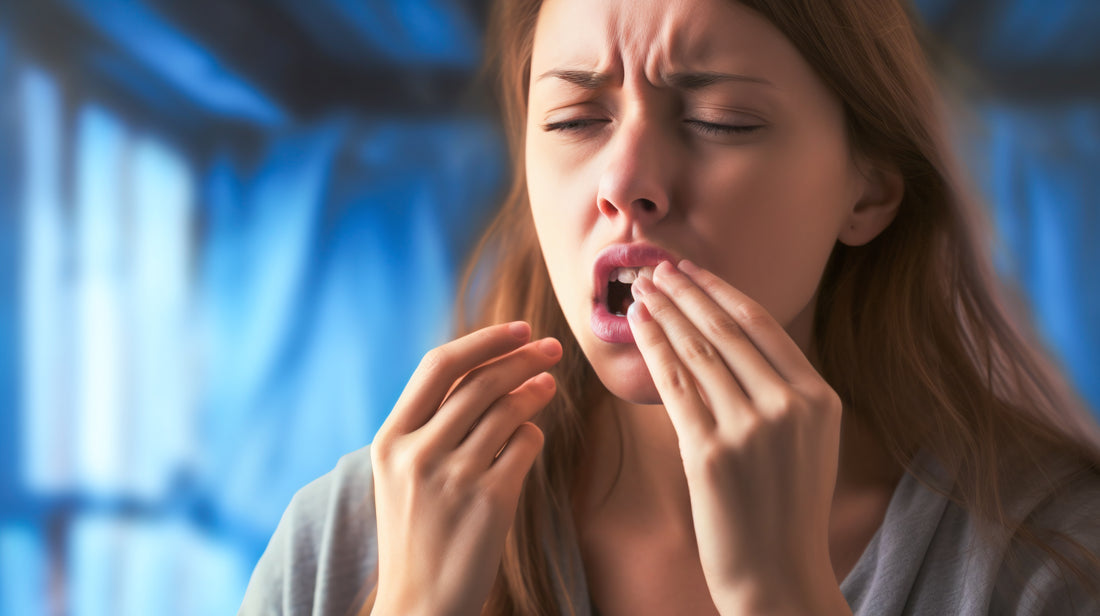
Understanding Lip Inflammation
Share
When it comes to maintaining healthy skin, the delicate nature of our lips often requires special attention.
Thatching of the lips, a term used to describe inflammation, can result from a variety of causes ranging from allergic reactions to physical damage. If left untreated, this condition can lead to discomfort, roughness, and severe irritation. Understanding the underlying causes, such as allergic reactions to cosmetics and foods, friction damage, and damage to the protective coating of the lips, is crucial in adopting the right care and prevention strategies. In this article, we'll delve into the world of lip care, exploring the most common culprits behind lip thatching and offering expert advice on how to maintain soft, healthy lips.
DERMED, the company behind this article, is a Japanese pharmaceutical company that develops beauty-related ingredients. In response to various beauty-related questions we have received, we are once again providing information to you.
Table of Contents
- Understanding Lip Inflammation
- The Impact of External Factors
- Prevention and Care
- Treatment Options
Understanding Lip Inflammation
Causes of Thatching
Lip inflammation, or thatching, can be a painful and unsightly condition, manifesting as roughness, redness, and sometimes swelling. The lips' protective barrier can be compromised due to several factors, including environmental stressors, harsh skincare products, and underlying health conditions.
The Role of Allergic Reactions
Allergic reactions play a significant role in the development of lip thatching. These reactions can be triggered by ingredients in cosmetics, such as lipsticks or balms, and certain foods. Symptoms may include itching, burning, and visible inflammation, signaling the need to identify and eliminate the allergen.
The Impact of External Factors
Friction Damage Explained
Repeated physical trauma, such as biting or rubbing the lips, can lead to friction damage. This physical stress weakens the lips' natural barrier, making them more susceptible to irritation and inflammation.
Protecting the Lip's Protective Coating
The lip's protective coating is its first line of defense against environmental aggressors. Factors such as cold weather, wind, and sun exposure can strip away this natural barrier, emphasizing the importance of protective lip products with SPF and moisturizing ingredients.
Prevention and Care
Identifying and Avoiding Allergens
The first step in preventing lip thatching is to identify potential allergens in your diet and skincare routine. Opting for hypoallergenic cosmetics and being mindful of food sensitivities can mitigate the risk of allergic reactions.
Tips for Reducing Friction Damage
To minimize friction damage, avoid habits such as lip biting and ensure your lips are adequately moisturized throughout the day. Using lip balms that create a protective layer can also shield the lips from physical and environmental damage.
Strengthening the Lip's Barrier
Strengthening the lip's barrier involves consistent hydration and the use of nourishing lip products. Look for ingredients like ceramides, hyaluronic acid, and natural oils that help to restore moisture and resilience.
Treatment Options
Home Remedies and Over-the-Counter Solutions
For mild cases of lip thatching, home remedies such as applying honey or coconut oil can provide relief. Over-the-counter products designed for sensitive skin can also be effective, especially those containing calming ingredients like aloe vera and vitamin E.
When to Seek Professional Help
If symptoms persist despite home treatment, it may be necessary to consult a dermatologist. Professional guidance can help identify underlying causes and recommend targeted therapies, such as prescription creams or dietary adjustments.
